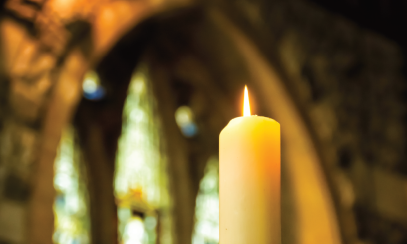Can Catholics Believe in Evolution?
Dear Fr. Joe: Tell me about evolution. Some people say that Catholics can’t believe in evolution and that creation happened exactly as it says in Genesis. I have a teacher who says that evolution is a scientific fact. What do Catholics believe?
Dear Fr. Joe: Tell me about evolution. Some people say that Catholics can’t believe in evolution and that creation happened exactly as it says in Genesis. I have a teacher who says that evolution is a scientific fact. What do Catholics believe?
This is an extremely relevant question. There are so many mistaken ideas out there about what Catholics can and cannot believe. This article has taken a lot of sorting and reading, but I think I have some information that will help us all.
First, let’s deal with your teacher. What he or she said was somewhat right and somewhat wrong. Your teacher was right that evolution is a scientific fact, but not regarding the origins of the human race, as described by Darwin. The fact is, creation is constantly evolving. Particularly when you view the smaller, simpler species among us; they constantly change the way they relate to their environment and adapt to circumstances around them. We even do this; our bodies have changed and will change in relation to our environment. Have you stayed for a long time in a warm environment and then found, when you returned to Michigan, it was colder? Our bodies adapt by thinning our blood in warmer temperatures and thickening it in colder ones. In that regard, evolution is a scientific fact.
In terms of the origins of the human race, Darwin’s theory of evolution is just that – a theory, not a scientific fact – and one that is under fairly serious attack from both Christian and non-Christian scientists. There are way too many gaps in the theory for it to be called “accepted fact.” I do not have the time or space to describe the problems on a scientific level, and I invite you to check out the book The Case for Creation, by Lee Strobel. This book makes a complicated argument understandable. A little research will show that believing the origin of all creation came about as a result of random genetic mutation requires just as great a leap of faith as a literal intrerpretation of Genesis.
Now, to be clear, the catechism gives us some “wiggle room” when it comes to what we believe about “how it all began.” We are able to believe what we wish to believe, as long as we acknowledge the following:
• God intended the world and all that is in it
• God created out of nothing and
• God created out of love.
Instead of focusing on the scientific theories and arguments, I want to point out some of the implications of believing that the origin of the human race is not God.
Look at it this way – if we take God out of the equation, then we are random, and that goes right to the heart of the question, “Why am I here?” If you believe that God created the world, and you have accepted Jesus, then you have a mission and purpose. You are to live to glorify God. You were created to receive and give his love.
Now, contrast that with this – if we accept Darwin’s hypothesis that we are randomly generated and a product of his particular theory of evolution, then our purpose is tied to the credo, “survival of the fittest.” Check out the World War II section in your history books to see how that philosophy of life works out in practice.
Darwin himself felt that evolution brought about the superiority of men and dominance over women:
The chief distinction in the intellectual powers of the two sexes is shown by man’s attaining to a higher eminence, in whatever he takes up, than can woman whether requiring deep thought, reason, or imagination, or merely the use of the senses and hands ... the average of mental power in man must be above that of woman. (Descent of Man by Charles Darwin p.586)
There is much more to say, but I have run out of room. I do want to end with an important point: parents, if your kids are going to school, I recommend strongly that you evaluate the books your kids are using in their science class. I get a lot of letters from young people whose teachers openly mock Christian beliefs about creation. Make no mistake, teaching Darwin’s brand of evolution as the origin of the human race is a religious belief; it has a creed, it has a belief structure, and it requires a tremendous amount of faith. It also asks its followers to evangelize and to spread its beliefs.
As Christians, we must learn what we can about creation and know what we believe, so that we can effectively spread the truth.
Enjoy another day in God’s presence!



